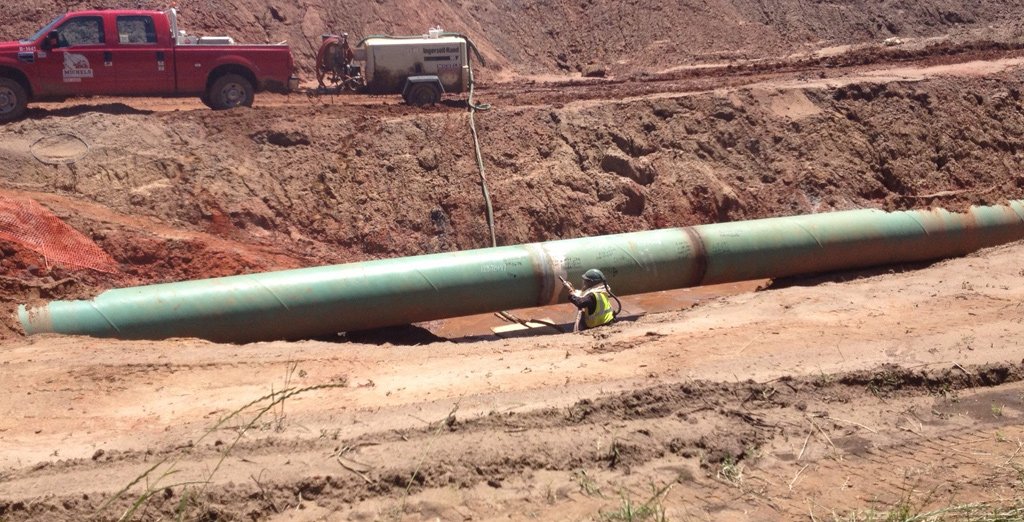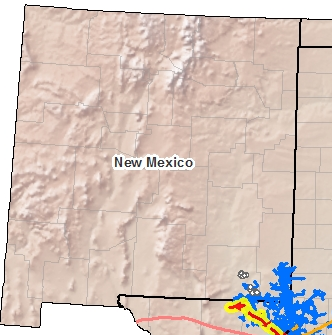
The New Mexico Environmental Department (NMED), the agency of the New Mexico state government responsible for “protecting and restoring the environment”, is serious about safeguarding air quality for all New Mexicans.
On Monday, August 30, the agency announced in a press release that it has “entered into a settlement agreement and stipulated final compliance order with ETC Texas Pipeline, Ltd., (ETC),” a natural gas company with headquarters in Tulsa, Oklahoma.
The agreement and order are to resolve “alleged statutory, regulatory and permit violations” at the company’s natural gas plant near Jal. According to information posted at the Fact Harbor website, the Jal facility “receives gas from surrounding oil and gas fields and other sites … with the hydrogen sulfide, carbon dioxide, and water removed.” At the Jal facility the received gas is processed into liquid and compressed natural gas which are, then, “transported from the facility through pipelines to third party customers.”
Jal. No. 3 Emitted Pollutants

Referred to as the Jal No. 3 Gas Plant, the NMED alleges that the natural gas facility illegally emitted more than three million pounds of pollutants during the 20-month period of Jan. 1, 2017 – Aug. 31, 2018. However, the actual settlement agreement corrects the amount illegally emitted to 2.4 million pounds, as a result of figures submitted by ETC from its own emission reports.
Settlement Agreement
The settlement agreement includes a $1.3 million civil monetary fine that ETC will pay to the State of New Mexico, plus the requirement on the part of the company to permanently shut down the sulfur recovery unit at the Jal No. 3 facility.
The shut down itself will eliminate over 1,200 tons of pollutants annually in southeast New Mexico. The result will be better air quality for all of Lea County.
“There is no denying that unless the Department adopts the strongest emission rules possible to protect air quality and continues to vigorously holds polluters like ETC Texas Pipeline accountable for their egregious emissions violations – our air quality will deteriorate further resulting in federal sanctions due to unhealthy air quality levels,” stated NMED Cabinet Secretary James Kenney in the press release.
Investors and shareholders understand that environmental compliance is serious business, and Kenney points out that “strong enforcement” breeds adherence to regulatory requirements.
In accordance with New Mexico State law, the $1,302,347.51 fine will be deposited into the state’s general fund, not into the coffers of the NMED.
Additional Action by the NMED – Ozone Precursor Rule
The NMED is taking additional steps to improve air quality in New Mexico.
Later this month on September 20, the NMED will present what is known as the “ozone precursor rule” to the Environmental Improvement Board, the arm of the NMED that adopts and promotes most NMED regulations prior to their implementation. If adopted the rule would likely go into effect in early 2022.
The goal of the “ozone precursor rule” is to “improve air quality for all New Mexicans by establishing innovative and actionable regulations to curb the formation of ground-level ozone in the state’s most affected regions,” as well as the reduction in “emissions of dangerous greenhouse gases,” states a NMED press release. Ground-level ozone pollution not only lowers air quality but is also tied to causing cancer and other respiratory illnesses.
If approved the new rule will protect the public health in and the environment of New Mexico to a higher standard than do current federal regulations. Additionally, New Mexico will become the US leader when it comes to “smart regulations.” In Secretary Kenney’s own words, the proposed new mandate will be “a nationally leading oil and gas rule.”
The rule will especially impact oil and gas producers in Lea County, as the county has high ozone levels that exceed federal standards. Other counties that will be impacted by the rule, although not all have oil and gas production, are Chaves, Doña Ana, Eddy, Río Arriba, Sandoval, San Juan and Valencia.
About the proposed new rule Gov. Michelle Lujan Grisham is quoted as saying, “New Mexicans can breathe easier [as a result of the “ozone precursor rule”] knowing that present and future generations will have cleaner air. This rule will not only hold industry accountable, but will also spur innovations and greener practices in the oil and gas fields. The effect will be equivalent to taking eight million [ICE] cars off the road every year.”
Not All Agree that the Rule Will Be Positive for New Mexico
Some New Mexico lawmakers are worried that the proposed “ozone precursor rule” would negatively affect the state’s budget as a result of its impact on the state’s oil and gas industry.
New Mexico Oil and Gas Association (NMOGA) Chairman Leland Gould said earlier this year in response to the proposed “ozone precursor rule, “NMOGA and our members are committed to protecting the health and environment of the communities where we operate, and we support sound, science-based regulations to reduce methane emissions and ozone levels.” … “New Mexico should be a leader in responsible energy development, and an appropriate regulatory framework will allow oil and natural gas to continue to deliver enormous fiscal and economic benefits to all New Mexicans while reducing emissions, safeguarding natural resources, and improving our environment.”
However, the association after conducting an analysis has concerns about the rule fearing that it would cost oil and gas operators in the state up to $3.2 billion during year one and $3.8 billion over a five-year period, resulting in the loss of more than 3000 jobs in the state’s “petroleum production industry” with a cost of “$674.2 million annually” to the state’s economy.
Some folks in Lea County will be affected negatively by the shut down of the sulfur recovery unit at the Jal No.3 Gas Plant and the potential adoption of the “ozone precursor rule”. Jobs certainly will be lost. On the flip side of the coin, logic suggests that a higher air quality will benefit all. Like in most all situations, money is the bottom line and will play a formidable role when final decisions are made. Right now, the NMED is taking a proactive stance to ensure that current environmental violations at the Jal No. 3 Gas Plant cease.


